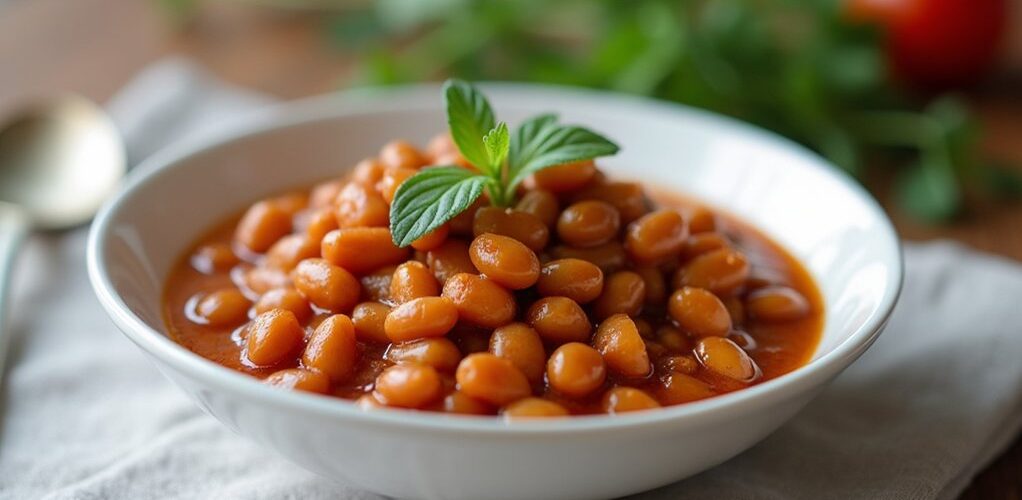
Baked beans are not low-carb, containing approximately 27.3 grams of carbs per half-cup serving, with up to 12 grams from added sugars. Traditional baked beans are incompatible with strict low-carb diets like keto, which typically restrict daily carb intake to 20-40 grams. While beans offer valuable nutrients like protein and fiber, carb-conscious individuals should consider alternatives such as black soybeans or green beans. Smart portion control and ingredient substitutions can help balance nutritional benefits with carbohydrate concerns.
Key Takeaways
- Baked beans are high in carbs, containing approximately 27.3 grams of carbohydrates per half-cup serving.
- A standard cup of baked beans contains 37.9 grams of net carbs, making them incompatible with strict low-carb diets.
- Commercial baked beans often contain hidden sugars, with up to 12 grams of added sugar per half-cup serving.
- Low-carb alternatives include black soybeans (10g net carbs) and green beans (0.3g net carbs per cup).
- Making homemade baked beans with black soybeans and sugar alternatives can significantly reduce carb content while maintaining flavor.
The Carb Content Reality Check of Baked Beans
While baked beans are a beloved comfort food, their carbohydrate content presents significant considerations for those monitoring their dietary intake. Analysis reveals that a standard half-cup serving contains approximately 27.3 grams of carbs, with added sugar contributing up to 12 grams of this total. For individuals following low-carb diets or pursuing ketosis, these numbers pose a substantial challenge. A full cup serving delivers around 37.9 grams of net carbs, making baked beans incompatible with strict dietary protocols like keto. The presence of significant added sugar further compounds this issue, as a typical half can contains 10.3 grams of sugar within its 26.7 grams of total carbs. These figures clearly demonstrate why many carb-conscious consumers opt to exclude baked beans from their meal plans. The ketogenic diet emphasizes maintaining low carb intake, and baked beans' high carb content makes it difficult for individuals to achieve ketosis.
Understanding Net Carbs Vs Total Carbs in Baked Beans
The distinction between net carbs and total carbs plays an important role in understanding the true dietary impact of baked beans. When calculating net carbs per serving, subtract dietary fiber from total carbohydrates, but baked beans offer minimal fiber content compared to their high carb count. A standard cup serving contains approximately 37.9 grams of net carbs, making them unsuitable for a low-carb diet. To accurately assess baked beans' carbohydrate content, it's important to examine their nutritional breakdown. With around 27.3 grams of total carbohydrates in a half-cup serving, including roughly 12 grams of added sugars, the numbers are significant. Different brands may vary in their carbohydrate profiles, making label reading vital for those monitoring their carb intake. For those on a keto diet, maintaining net carb intake below 20-40 grams per day is essential to stay in ketosis.
Hidden Sugars and Additives to Watch For
Savvy consumers should carefully examine baked bean labels since manufacturers often incorporate various forms of hidden sugars and additives that can greatly impact carbohydrate content.
When examining ingredient labels, consumers may find that processed baked beans contain high-fructose corn syrup, molasses, and other sweeteners that considerably increase the net carb count, with some varieties containing up to 12 grams of sugar per half-cup serving.
To avoid these high-carb additives, preparing homemade baked beans offers greater control over ingredients while maintaining flavor.
Making baked beans from scratch lets you control carbs and additives without sacrificing the delicious taste you love.
This approach allows consumers to eliminate unnecessary preservatives and flavor enhancers that commonly appear in commercial varieties.
Impact of Baked Beans on Ketosis
Consuming baked beans presents significant challenges for individuals following a ketogenic diet due to their high net carb content of 37.9 grams per cup, which can quickly exceed the daily 20-50 gram carbohydrate limit required for maintaining ketosis. The substantial amount of added sugars in baked beans, approximately 12 grams per half cup, can trigger insulin spikes that interfere with the body's fat-burning mechanisms essential for ketosis. Understanding these impacts helps keto dieters make informed decisions about their food choices, often leading them to select lower-carb alternatives like black soybeans or green beans that better support their metabolic goals. Additionally, lower blood glucose levels associated with a ketogenic diet are crucial for managing type 2 diabetes, which can be disrupted by consuming high-carb foods like baked beans.
Ketosis Disruption Risk Factors
Understanding how baked beans affect ketosis requires careful consideration of their substantial carbohydrate content.
With 27.3 grams of carbohydrates per half cup serving, baked beans pose a significant risk for ketosis disruption, especially considering the typical daily carb limit of 20-50 grams for maintaining ketosis.
The presence of added sugars, which can reach up to 12 grams per half cup, further compounds this risk by potentially causing rapid blood sugar elevation.
Even modest portions of baked beans can quickly deplete the daily carbohydrate allowance for those following a ketogenic diet.
To maintain ketosis while enjoying similar flavors, individuals should explore low-carb alternatives such as black soybeans or green beans, which provide comparable satisfaction without compromising their metabolic state.
Managing Blood Glucose Spikes
While baked beans offer nutritional benefits, their impact on blood glucose levels presents considerable challenges for individuals following a ketogenic diet.
With approximately 37.9 grams of net carbs per serving and substantial added sugars, baked beans can trigger dramatic blood sugar fluctuations that disrupt ketosis.
For those committed to managing blood glucose levels while maintaining a low carb diet, the high carbohydrate content in baked beans poses a particular concern.
These spikes not only interfere with weight loss efforts but can also lead to energy crashes and increased carb cravings.
Health-conscious individuals seeking to maintain stable blood sugar levels should consider alternatives like black soybeans or green beans, which provide similar satisfaction with considerably fewer carbs per serving, making them more suitable for ketogenic lifestyle maintenance.
Smart Alternatives for Bean Cravings
For those following a ketogenic diet, several fiber-rich alternatives can effectively replace traditional baked beans while maintaining low carbohydrate levels. Black soybeans and green beans stand out as excellent substitutes, offering similar textures with considerably fewer net carbs per serving. Beyond legumes, creative options like mushrooms, eggplant, and boiled peanuts can satisfy bean cravings while supporting ketosis through their minimal carbohydrate content. Incorporating non-starchy vegetables such as broccoli and cauliflower into your meals can also help maintain ketosis while providing essential nutrients.
Fiber-Rich Bean Substitutes
Although traditional baked beans pack a significant carbohydrate punch, several fiber-rich alternatives can satisfy bean cravings without derailing dietary goals.
Green beans stand out as an excellent low-carb beans option, containing a mere 0.3 grams of net carbs per cup, while black soybeans provide a hearty alternative with only 10 grams of net carbs per serving.
For those seeking creative substitutes, enoki mushrooms offer a unique texture with just 3 grams of net carbs per cup, and eggplant serves as a versatile base in traditional bean-based recipes.
Boiled peanuts represent another fiber-rich option, delivering protein and satisfaction with approximately 4 grams of net carbs per ounce, making them an ideal choice for those monitoring their carbohydrate intake.
Quick Keto Bean Swaps
Savvy keto dieters seeking convenient bean replacements can find immediate satisfaction with several smart alternatives. Black soybeans stand out as an excellent substitute for baked beans, containing just 10 grams of net carbs per cup, while green beans offer an even lower-carb option at 0.3 grams per cup.
These keto-friendly choices maintain similar textures without compromising dietary goals.
For those requiring additional low-carb alternatives, enoki mushrooms provide a unique option with only 3 grams of net carbs per cup. Ground meat or cauliflower can effectively replace beans in heartier dishes, maintaining satisfaction while reducing carbohydrate intake.
Boiled peanuts serve as an unexpected yet practical solution, offering a mere 4 grams of net carbs per serving while satisfying cravings for traditional bean-based dishes.
Making Your Own Low-Carb "Baked Beans"
Creating a low-carb version of traditional baked beans becomes remarkably achievable by substituting conventional navy beans with black soybeans, which contain a mere 1 gram of net carbs per half-cup serving. A homemade recipe allows complete control over ingredients, eliminating hidden sugars commonly found in commercial versions that can contain up to 27 grams of carbs per serving. Key elements for creating delicious low-carb baked beans include: 1. Using olive oil, onion, and garlic as a flavor base 2. Adding keto-friendly sweeteners like erythritol or stevia 3. Incorporating low-carb vegetables such as bell peppers or zucchini for enhanced nutritional value. While starchy vegetables like potatoes should be avoided on a keto diet, non-starchy alternatives can provide texture and flavor without adding excess carbs. The addition of smoked paprika, mustard, and Worcestershire sauce creates depth and authenticity while maintaining minimal carbohydrate content, resulting in a satisfying alternative to traditional baked beans.
Portion Control Strategies for Bean Lovers
While making low-carb baked beans offers a healthier alternative, managing portions of traditional baked beans remains valuable for those who prefer the authentic version. For individuals following a low-carb diet, understanding that a half-cup serving contains 27.3 grams of carbs helps inform portion decisions.
Implementing effective portion control strategies, such as using baked beans as a side dish rather than a main component, can help maintain carbohydrate limits.
Successful portion management involves combining small servings of baked beans with protein-rich foods and high-fiber vegetables to create satisfying meals. Using a food diary to track daily carb intake proves essential for staying within dietary goals.
When larger portions are desired, consider substituting with black soybeans, which contain considerably fewer net carbs and allow for more generous servings.
Nutritional Benefits Worth Considering
The nutritional profile of baked beans extends far beyond their carbohydrate content, offering substantial health benefits for conscious consumers. Rich in protein and dietary fiber, these legumes support muscle maintenance while promoting digestive health and blood sugar regulation.
- Essential vitamins and minerals, including B vitamins, magnesium, and iron, contribute to energy metabolism and overall wellness.
- A significant source of folate, providing approximately 20% of daily requirements for cellular function and red blood cell production.
- Antioxidant properties help combat inflammation and reduce the risk of chronic diseases.
Additionally, the potential for improved insulin sensitivity through nutrient-dense foods like baked beans can aid in managing blood sugar levels, contributing to overall health. These nutritional benefits make baked beans a valuable addition to a balanced diet, despite their carbohydrate content. Their combination of protein, fiber, and micronutrients creates a nutrient-dense food option that supports various bodily functions.
Meal Planning Tips for Low-Carb Success
Successful low-carb meal planning requires strategic organization and thoughtful consideration of macronutrient ratios. Effective preparation begins with calculating net carbs and guaranteeing daily intake remains within 20-50 grams for maintaining ketosis.
When developing meal plans, focus on incorporating whole foods and healthy fats such as avocados and olive oil, which should comprise 70-80% of daily calories.
Careful label inspection helps identify hidden carbohydrates in packaged foods, while utilizing low-carb substitutes maintains familiar flavors without compromising dietary goals.
Preparing portions in advance guarantees consistent macronutrient intake throughout the week, making it easier to stay on track.
This systematic approach to high-fat, low-carb meal planning helps create sustainable eating habits while eliminating the guesswork often associated with carbohydrate restriction.
Incorporating diverse meals into your plan can help maintain interest and adherence, offering variety in your diet while meeting macronutrient goals.
Expert Recommendations for Bean Consumption
Nutritionists recommend carefully measuring bean portions and tracking daily carbohydrate intake to maintain ketogenic or low-carb dietary goals.
When craving traditional baked beans, health experts suggest switching to black soybeans or green beans, which contain considerably fewer carbohydrates while providing similar nutritional benefits.
For those seeking the classic baked bean experience, creating homemade versions using low-carb beans and alternative sweeteners offers a practical solution that aligns with carbohydrate restrictions.
Managing Daily Bean Portions
When planning daily bean consumption, individuals must carefully consider portion sizes to maintain their desired dietary goals, particularly for those following specific carbohydrate restrictions.
Understanding carb counts is essential, as baked beans contain approximately 37.9 grams of net carbs per cup, making them challenging to incorporate into a keto diet.
- Green beans offer the lowest carb option at 0.3g net carbs per cup, making them ideal for daily consumption.
- Black soybeans provide a moderate alternative with 10g net carbs per cup.
- Traditional baked beans should be limited to once or twice weekly on a cyclical ketogenic diet.
For those following a 2,000-calorie diet, the recommended intake is 1.5 cups of legumes per week, though portion sizes may need adjustment based on individual carbohydrate limits and dietary goals.
Alternatives For Bean Cravings
While tracking daily bean portions helps maintain dietary goals, those seeking to reduce their carbohydrate intake can explore several satisfying alternatives that mirror the texture and flavor of traditional baked beans.
Black soybeans and green beans stand out among low-carb options, containing just 10g and 0.3g of net carbs per cup, respectively.
For those looking beyond bean alternatives, stuffed mushrooms and eggplant dishes can effectively replicate the hearty texture of beans while keeping carbohydrates minimal.
Ground meat serves as an excellent substitute in traditional bean-heavy recipes like chili, maintaining satisfaction without being high in carbohydrates.
Additionally, boiled peanuts provide a unique alternative for snacking, offering a bean-like experience with only 4g of net carbs per quarter cup serving.
Frequently Asked Questions
Are Baked Beans Ok on a Low-Carb Diet?
Baked beans nutrition reveals high carbohydrate content, making them unsuitable for low-carb dietary restrictions. Careful portion control or exploring low carb alternatives like black soybeans helps with meal planning within carb limits.
Can You Eat Baked Beans When Trying to Lose Weight?
Baked beans can support weight loss benefits when consumed with portion control, as they provide protein source and fiber intake. However, their high calorie content requires careful meal planning to maintain a deficit.
Will Beans Kick You Out of Ketosis?
Most beans can disrupt ketosis due to high carb counts, despite their fiber benefits. Even small portions contain enough net carbs to exceed daily keto limits, requiring careful meal planning consideration.
Can You Eat Beans and Still Be Low-Carb?
Careful portion control allows limited bean consumption on low-carb diets. Focus on lower-carb varieties like black soybeans, prioritize fiber benefits through meal planning, and consider healthy alternatives when carb counting exceeds limits.
Conclusion
While traditional baked beans aren't strictly low-carb, they can still fit into a moderately low-carb diet when properly portioned. Smart consumers should carefully check labels for hidden sugars, consider reduced-sugar varieties, or explore alternative legumes. Those following strict ketogenic diets should limit or avoid baked beans, but moderate low-carb dieters can occasionally enjoy small servings while capitalizing on their protein and fiber benefits through mindful consumption.
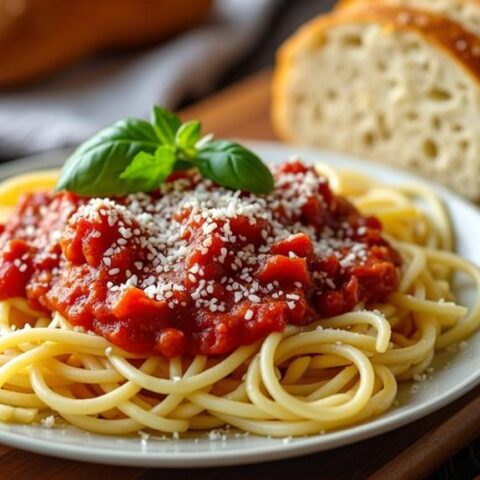

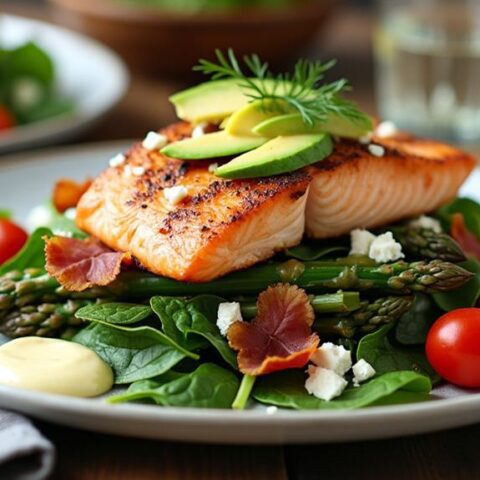
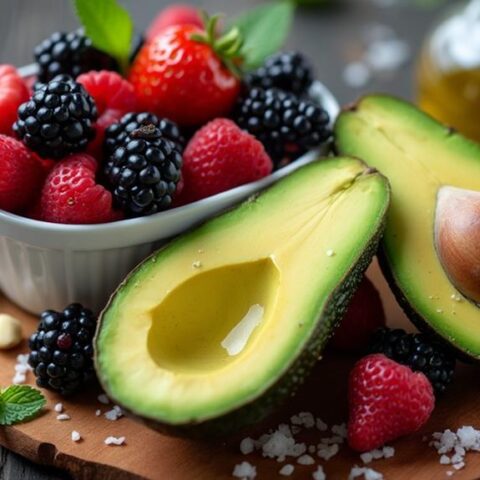

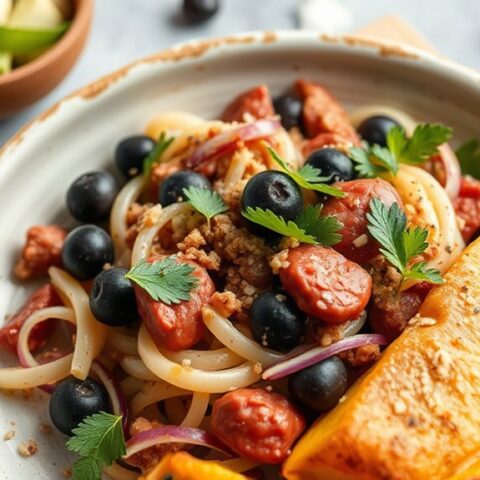




No Comments